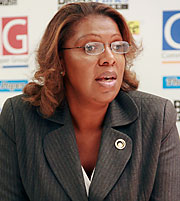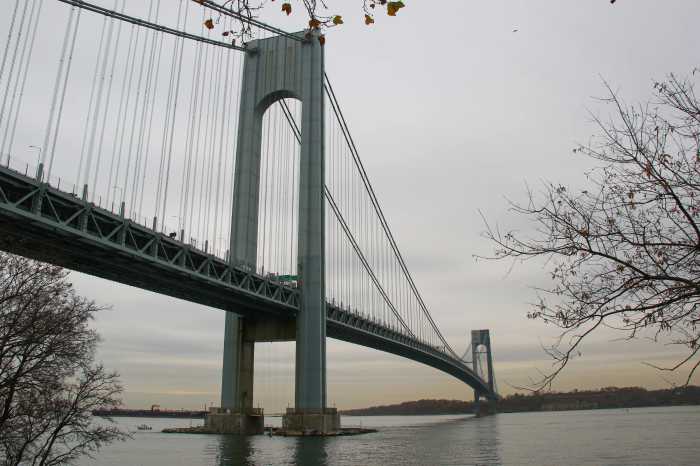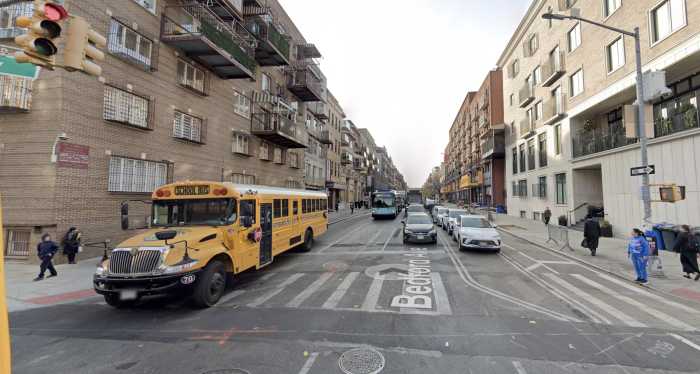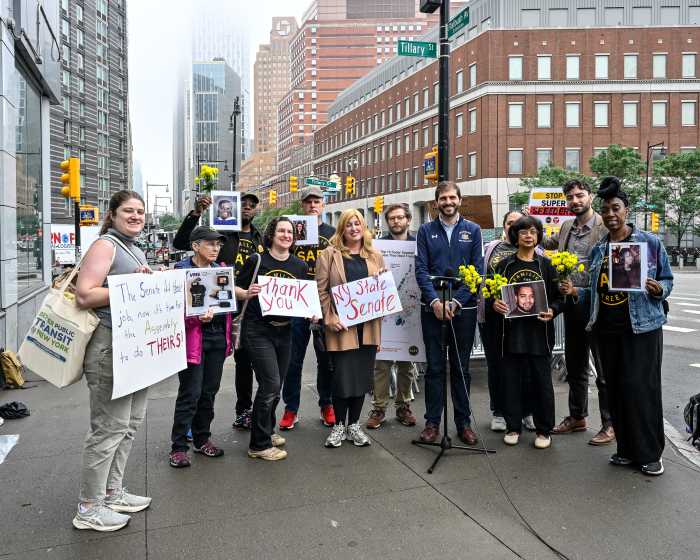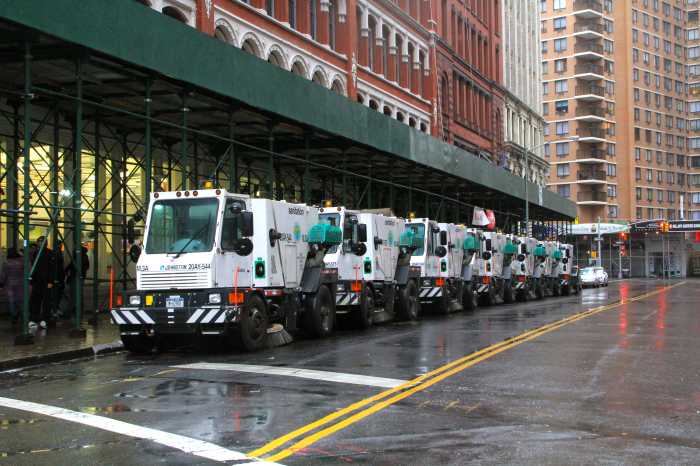Talk about pedaling in two different directions at once!
Councilwoman Letitia James (D–Fort Greene) repeatedly broadcast her desire for extending bike lanes throughout the borough during Thursday’s hearing on the city’s bike lane policy — even though she’s backing Councilman Lew Fidler’s (D–Canarsie) call for public hearings that could curtail the city’s free-wheeling, bike lane-laying ways.
“I can think of no better way of addressing the sedentary lifestyle than expanding the bicycle network,” James testified as she joined the calcaphony of pro and con comments at the hearing about the city’s bike lane revolution.
Yet James is the only legislator in the Brownstone bike belt to sign onto Fidler’s bill, which would require public hearings before a bike lane is constructed.
But the bill has broad backing in Southern Brooklyn, as Michael Nelson (D–Midwood), Domenic Recchia (D–Coney Island), Jumaane Williams (D–Flatbush) and David Greenfield (D–Borough Park) have all signed on.
James disagreed that she was being inconsistent.
“I want more bike lanes, but I also see a benefit in the community board determining if they are necessary,” she said. “They’re the voice of the people.”
But some of those people don’t want an extra layer of bureaucracy hindering the city’s expansion of its bicycle network.
“We don’t want to slow down the goal of building safer streets,” said Kim Martineau, a spokeswoman for the bicycle advocacy group Transportation Alternatives.
Hearings at the community board level would no doubt further widen the gap between car-dependent neighborhoods in Southern Brooklyn and the mass-transit and bike-friendly neighborhoods to the north.
In October, for example, Department of Transportation officials were nearly run out on a rail as they told Community Board 18 about plans to bring bicycle lanes to E. 94th and E. 95th streets in Canarsie.
Members of the board were adamant about stopping the bike lanes.
“If we lived in some kind of utopia, bicycle lanes would be wonderful,” District Manager Dorothy Turano said. “But in reality it’s not practical. No one here bicycles to work.”
Of course, Fidler’s bill wouldn’t give community boards any more powers than they have now. The bill only demands that the city notify affected community boards. There’s nothing in the legislation to prevent the city from installing a bike lane — no matter how much a neighborhood may hate them.
The new pushback against bike lanes comes as the city is in the midst of a Bicycle Master Plan, which calls for 200 miles of new bike lanes across town in the next three years. After that, the Department of Transportation plans to add about 50 miles of bike lane each year until 2030, when it is anticipated that the bike network will be finished.


